#creator: paul frommer
Explore tagged Tumblr posts
Text
#reviewer: throne of salt#creator: j. r. r. tolkien#creator: sonja lang#creator: shevek urrasti#creator: john quijada#creator: hector ortega#creator: logical language group#creator: paul frommer#creator: mac okrandi#creator: carl buck#creator: olivier simon#creator: david j. peterson#creator: hans widmer#creator: l. l. zamenhof#creator: biblaridion#creator: etienne l. poisson#creator: nick farmer#creator: longlanglin#creator: adytite#creator: greg kasavin
3 notes
·
View notes
Text
ok, I mentioned in tags the other day that I had something else that I wanted to address about Josh Izzo's Omaticon panel but wanted to wait until I had a chance to rewatch the recording (missed several chunks of it when it was live due to technical difficulties on my end) to make sure I had the full proper context. Now that I've done that, here it is:
Mako asked Izzo about how much he consulted Paul Frommer (creator of the Na'vi language) for the games, comics, etc. Izzo responded that he does so very frequently and that all the Na'vi language stuff in official media goes through Frommer to be checked first.
Now, to be clear, I do believe him when he says this. I can 100% believe that he talks to Frommer frequently and that Frommer checks everything. If this weren't the case, the Na'vi we get in AFoP, for example, would be far far far worse than it is (side-eyes old Activist Survival Guide).
However....
Mistakes can still happen. Typos can still happen. Even if Frommer approves an initial name or word or sentence, someone down the line could still mishear it or misspell it (either by transcribing it incorrectly or simply making a typo) etc.
The character "Eetu", for example. The pronunciation of this character's name in the game is perfectly valid in Na'vi, but the spelling doesn't match: it should be Itu. I'm completely willing to believe that Frommer heard the name pronounced "Itu" and said "yeah that works", but I highly highly highly doubt that he saw it written down as e-e-t-u when he approved it because that just does not fit with how Na'vi spelling works.
Same with "P'asuk", I don't doubt for a second that Frommer could've been asked "hey, we want to name this character 'berry', how do you say that?" and responded "sure, that word is Pasuk!" but I just cannot buy that he'd have seen it written down with the unnecessary (and invalid!) tìftang and said "yup that's fine". I'm sorry, I just don't believe that; it doesn't make sense.
And then of course, there's things that are inconsistently misspelled: for example, AFoP usually spells "Zeswa" correctly, but there are a few places in the Hunter's Guide where it's incorrectly spelled "Zes'wa", which is phonetically invalid per Na'vi syllable structure.
Now, I'm not saying this to hate on the team who put AFoP together. I very much enjoy AFoP and the majority of the Na'vi language stuff in it is very good. But mistakes happen. And these are mistakes.
Which brings us to my issue with Izzo's panel: when he noticed some people in the chat bringing up these small typos and errors, instead of acknowledging that "hey yeah, people might have made a few typos, we do our best to avoid it but mistakes happen sometimes", he........basically doubled down on them, insisting that Frommer approved everything and handwaving any inconsistencies as "meh it's just a conlang, there's a wiggle room".
which.......I'm sorry, Mr. Izzo, as someone who both studies and teaches the Na'vi language that is a major L take.
He shared an example story from the first movie, where Zoe Saldaña accidentally mispronounced a word (pähem) and the mispronunciation wound up getting canonized as a synonym (pate).
Here's the problem, though: pähem was not the only word that got mispronounced the first movie. There are tons of mispronunciations to varying levels of severity. But pate is the only one that got canonized as a new word (idk why they decided to do that for this one particular word but ¯\_(ツ)_/¯ ). At one point Jake says "analu" when he should've said "ngari" but you won't find that in any dictionaries.
It's a kinda fun story that the word pate stems from a mispronunciation, but it's not the norm. 99% of the time, when an actor flubs a word, it's just that: a flub. A mistake. And that's ok, because mistakes happen. But it's a mistake nonetheless. And that applies to typos and misspellings too.
The High Ground Vol 1 consistently misspells skxawng—one of the most well-known Na'vi words outside of the language community—as skwang, but you ain't gonna be seeing "skwang" show up in any Na'vi dictionaries any time soon.
Yes, it's true that Na'vi is a conlang and that it's actively growing and evolving. But hand-waving away very obvious mistakes as "oh it's a conlang it's flexible" was...not good.
Josh Izzo seems like a nice guy who really loves the fans and I understand that he wanted to emphasize how much effort they put into getting things right and that they do consult with Frommer etc—and that's all fine and good!
But, it seems very clear to me that Izzo himself simply does not know all that much about the Na'vi language or how it works. Which is fine of course, understanding the language is not his job; he can (and does) talk to Frommer for that. But if he did know more about the language and how it works himself, I don't think he'd be doubling down to validate these very clear mistakes.
#(none of this is meant as a personal attack towards Izzo of course; like i said he seems like a nice guy who loves what he does)#(it's simply a dissection of a poor take)#lì'fya leNa'vi#i will never accept the spelling “eetu” and you cannot force me to#nor “p'asuk” nor “zes'wa” nor “skwang”#just acknowledge they were typos my dude c'mon#even dedicated speakers who have been learning na'vi for years and years make typos and mistakes sometimes!!#we're not gonna think less of the effort you put into your craft just because a few errors slipped through#just....acknowledge them for what they are y'know.#“we work very closely with Frommer but sometimes mistakes happen” is all you gotta say and we get it man we get it. it happens#you don't have to double down on them to prove anything
13 notes
·
View notes
Text
Kopikon - September 23rd - Georgetown
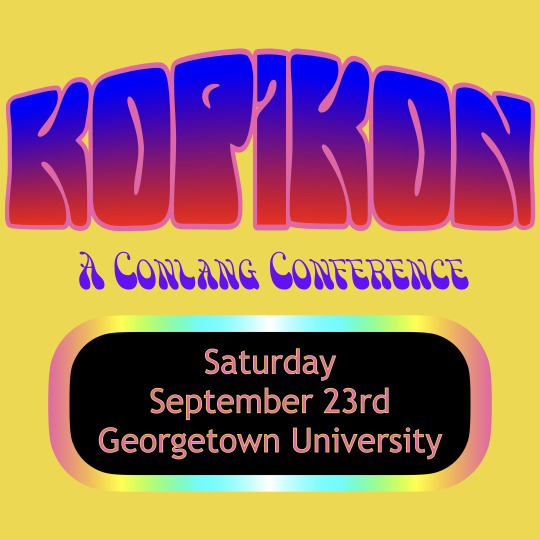
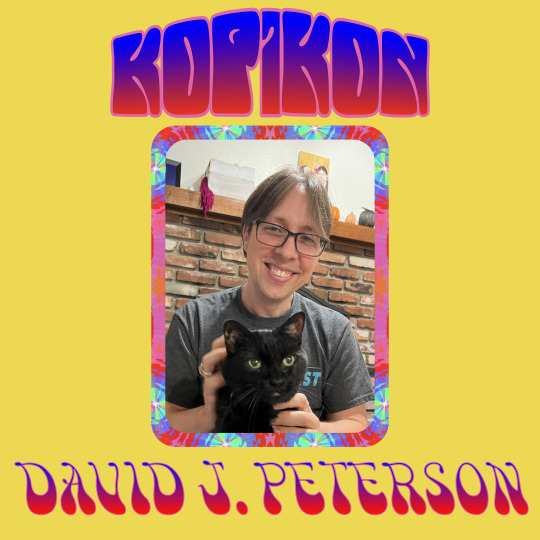

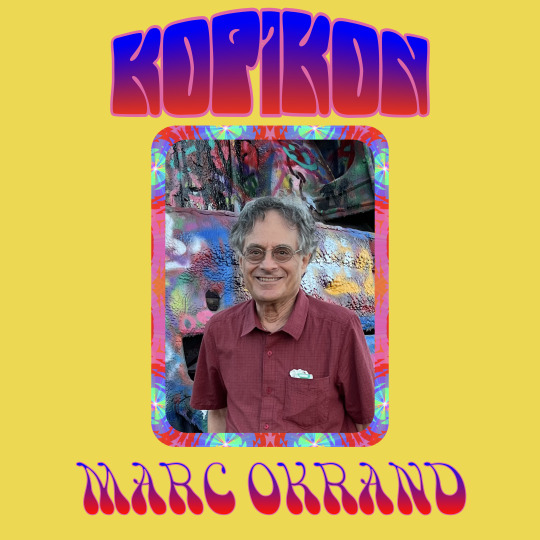


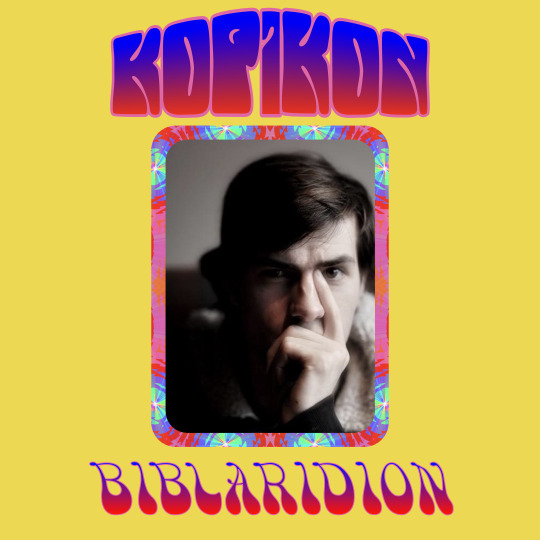
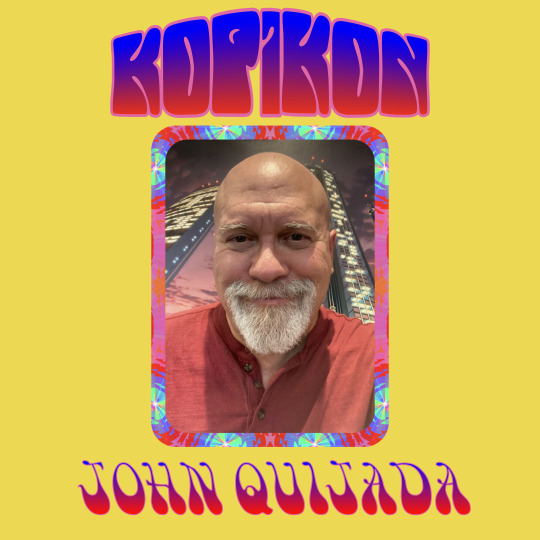
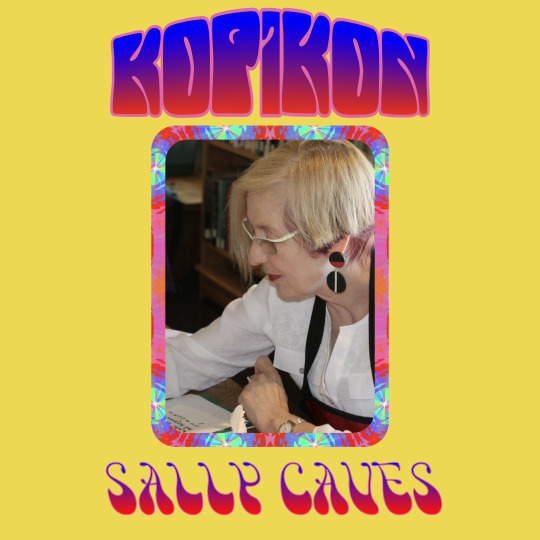
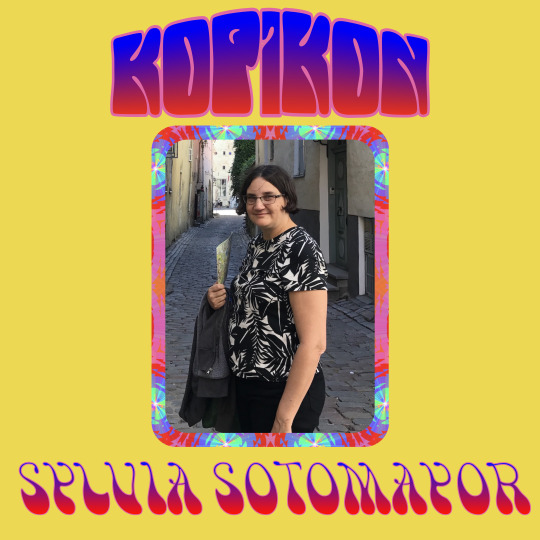
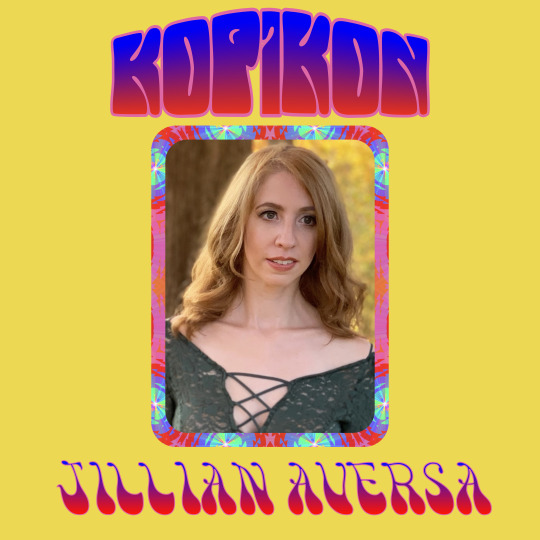


Kopikon is coming to Georgetown University, September 23rd! We have a ton of fantastic conlang presenters, and a few spots are still available! If you're interested in registering, go here:
Our presenters are:
David J. Peterson: Creator of Dothraki, Valyrian (Game of Thrones/House of the Dragon), and Trigedasleng (The 100)
Jessie Sams: Creator of Ts'íts'àsh (Elemental), Méníshè (Motherland: Fort Salem), and Aazh Naamori (Vampire Academy)
Mark Okrand: Creator of Klingon (Star Trek) and Atlantean (Atlantis)
Paul Frommer: Creator of Na'vi (Avatar)
Carl Buck: Creator of Sangheili (Halo)
Biblaridion: From his self-named YouTube channel
John Quijada: Creator of Ithkuil
Sally Caves: Creator of Teonaht and the character Reginald Barclay
Sylvia Sotomayor: Creator of Kēlen
We've also got a musical performance from the incredible duo Jillian and Andrew Aversa.
We'd love to see you there!
#conlang#language#the 100#game of thrones#defiance#orthography#valyrian#linguistics#hbo#trigedasleng#elemental#star trek#avatar#na'vi#klingon#halo#sangheili#st tng#st ds9#ithkuil#biblaridion#john carter#atlantis#disney atlantis#atlantean#the witcher#witcher#dune#warcraft#kopiko
37 notes
·
View notes
Text
Premiering NOW! My interview with Paul Frommer, the creator of Na'vi.
youtube
14 notes
·
View notes
Text
Resources for Avatar Writers/Creators

Here is a list of some helpful resources for writers/creators in the Avatar Fandom

Tirea Na'vi Name Generator
Learn Na'vi - Numbers
Learn Na'vi - Phonetics
Learn Na'vi - Grammar
Learn Na'vi - Phrases
Learn Na'vi - Vocab
Paul Frommer's Blog (creator of Na'vi Language)
Online Na'vi Dictionary
(Alt) Online Na'vi Dictionary
5 notes
·
View notes
Text
😹😹😹 they’re such dorks, I love them so much!!
…buuuuuuut as a Na'vi language nerd, especially after seeing the “debate” about it in the comments, I do feel very much obligated to say that this video’s usage of ma is incorrect.
The word ma is what linguists call a vocative marker. It’s a particle used before a name when addressing someone directly; you can think of it kinda like a verbal version of an @ in a chatroom.
Yes, Neytiri does say “ma Jake” several times in the movies, but if you go back and look at each time she does, you’ll notice that she only says it when talking directly to Jake, not when talking about him to someone else.
✅ Ma Jake, where did you go? <- This is correct use of ma! ❌ Hey Grace, did you see where ma Jake went? <- this is incorrect use of ma! ✅ Ma Grace, did you see where Jake went? <- This is also correct use of ma! Remember, ma is used for the person you are talking to, never for a third person you are talking about
and listen. I absolutely adore Jeytiri, they are 100% my favorite ship in this franchise. So I completely understand why Jeytiri shippers who haven’t studied Na'vi would want to latch onto “ma Jake” as a super cute affectionate thing that Neytiri does just for Jake, and am very sorry to have to burst that bubble, but…well, it’s not 😅
Addressing someone with ma is standard when speaking Na'vi; it’s done for everyone regardless of relationship, and doesn’t really have any romantic or affectionate significance. It’s not a special Jake-and-Neytiri pet name, it’s just basic Na'vi grammar that Neytiri sometimes slips into out of habit when speaking English (sorry) 😅
…or hey, if you don’t want to take my word for it, here’s a lesson with Paul Frommer himself (creator of the language!) where he explains it (among other things)! 😁
youtube
Neytiri being down bad for Jake while he tames his ikran for 1 minute and 7 seconds
#this is not meant as an insult of any kind against op. I’m just a nerd who enjoys talking about/teaching na'vi grammar#by FAR the two most common na'vi mistakes I see from the non-language side of the fandom are#1.) using “ma” like this (often accompanied by translating it as “my” which is also incorrect)#and 2.) inserting tìftang (the apostrophe thing) in places it doesn’t/can’t go. this is very common with OC names#(guys tìftang cannot go between two consonants plz I am begging you it doesn’t work like that it’s not decorative 😭)#….people also like to insert it *with* ma for that matter. so both mistakes simultaneously 😅#yes “ma Jake” is correct as long as you’re talking TO Jake….but “ma'Jake” is not correct EVER.#and I love FoP but they are REALLY not helping by writing “ma'yawntu” in Nefika’s subtitles (this is INCORRECT; it should be “ma yawntu”)#but *cough* anyways >_> that’s a tangent#lì'fya leNa'vi#Youtube
1K notes
·
View notes
Text
1 note
·
View note
Text
#aFactADay2022
#694: james cameron had a doctor of linguistics, a botanist and a zoologist on set to help him make sure everything was tip-top and scientifically plausible. but i find it ironic that he did all these things from scratch - the setting, the biology, the language, the history - but still recycled a lot of sound effects from jurassic park xD the language, Na'vi, is really interesting. it was designed to be easily learnable yet sound completely extra-terrestrial, and the measures to do so are cool. it started off at about 1000 words but since the 2009 movie, the dictionary has been expanded to over 2600 words and the grammar was published by its creator, paul frommer.
honestly i could do a whole week on the na'vi language. it took 3-4 years to initially develop, but was partially intelligible already by the time they cast the actors - they had to audition in na'vi. it was designed with a "polynesian flavour" but initially three versions of the language were created, each with very different sounds. early in development, cameron chose one of the three versions, which decided on the phonology, and by extension the syntax and morphology. i wonder how the language wouldve turned out had cameron been feeling different on that day. lots of mistakes were made on set, and some of these were written off as the sort of mistake a speaker would make anyway, but some were kept, and the language was altered to retrofit those mistakes.
today i was shown a very interesting interview with mark okrand, the creator of the Klingon conlang. he was talking about how he developed it - its first showing was between two characters, but the dialogue had already been filmed in english, so mark okrand had to retroactively fit the language, such that the dub synced with the lip movements of the actors. he also said a lot of similar things as the na'vi language, like that mistakes were incorporated into the language. both languages were designed to be alien-like, so lots of decisions in both were made based on its uncommonness - klingon uses an object-verb-subject formation, only found in a few languages on earth. furthermore, klingon has pronouns, suffixes and prefixes to indicate both subject and object type, but sometimes the actors missed these off, so he had to create rules where you could miss a pronoun (which would be implied by the prefix, for example). heres the video :)
0 notes
Text
When creating the Na’vi language for the Avatar movie, Paul Frommer chose to make the language have an octal (base-8) counting system because the Na’vi people only have 4 fingers on each hand.
Octal systems also exist in a few indigenous languages like Yuki in California and the Pamean languages of Mexico.
1 note
·
View note
Text
Oh i love Tsireya, she's so nice and friendly. But unfortunately, i have to pop your bubble about her a little.
The word in the song is "tìrey" specifically notice how it uses the accented ì and not a regular i. It's not just for fun, those are their own letters and they change the meaning of the word (as an example we have a beautiful pair of words txim = thorn and txìm = ass/butt lol).
As for the T vs TS, they are also 2 different sounds/letters that we just happen to write with the T symbol. Example of similar words using them: tun = red, tsun = can/be able - entitely different things.
For names, according to canon, they tend to be a gibberish - a combination of sounds that exist in na'vi, but don't mean anything in the form they have been assembled. And so, when creating names for OCs or nicknames for users, in the na'vi language community of the Kelutral discord server, some people freestyle it entirely, while some have the habit of picking a phrase or a handful of words with a meaning, chopping them into sylables, then playing lego with that. This strips names of all their original meaning.
It's possible that na'vi do a similar thing, but since we don't have a confirmation from Paul Frommer (the creator of the language) about whether na'vi use the same approach or not, any discussions about what does which name mean is futile, unfortumately.
And sure, you can try back engineer those things, but again, there are many words and many sounds they could be split into, so there's no sure way to say anything.
However, if you want to try, or if you just want to have a look around the na'vi lexicon for the fun of it, there are dictionaries like fwew, reykunyu and dict-navi with all known na'vi words (and there's a lot, karyu Pawl updates the vocab few times a year) where you can look up all kinds of words.
Fwew na'vi dictionary app
Reykunyu online dictionary
Dict-navi dictionary
Also please stay away from translators and from chatGPT when trying to do anything regarding the na'vi language, they are entirely useless and you will have much better results with searching manually word by word than trying to automate it. The AI is totally hopeless
Just a little Avatar theory, but I was listening to The Songcord when I decidedd to read the translations. And I found a navi word that kinda resembles Tsireya's name, called Tireya which means life. I wonder if Ronal and Tonowari gave her a name that involves something of life (not sure what the s or Tsi could mean by itself. It could be like 'Sweet Life' for example.) Overall, I think its cool that Tsireya's name might have an actual meaning to it that is in the Na'vi! AGGH, so cute too. Just to think that her name might have 'life' to it as a meaning.

LOOK AT HERZ LOOK AT MY SWEET GIRL
264 notes
·
View notes
Text
I got to the end of the Na'vi as a Second Language lessons on Kelutral.org and I'm a little sad that they ended (they end on the lesson about Na'vi Adpositions; there are no lessons yet for Clause Attribution and F-Words, Adverbs, and Conjunctions, nor the Topical Case. Lessons 2 and 3 dont have accessible lesson links either, at least not on mobile safari). But, again, I commend the Kelutral team for this wonderful, interactive resource because its truly very accessible and comprehensive so far.
I await the revival of the Avatar fandom to the extent that theres lots of funding and support for the rest of the Lessons because theyre already so helpful for basic grammar and syntax.
(Reminder! Kelutral.org has many resources on their resources page already for traditional text book language learning needs. The Kelutral Discord server bulletin boards and great channels for easily accessing resources for starting, and of course, the wonderful people, many long time fluent speakers, are there to help! Lastly Paul Frommer, the creator of Na'vi, runs Naviteri.org for many great explainations for vocabulary, language concepts, lesson videos, and more! This post is definitely not a discouragement as Na'vi as a Second Language is not the only accessible resource for learning lì'fya leNa'vi. Siva Ko!!!)
21 notes
·
View notes
Video
youtube
Full Interview with Na'vi Language Creator Paul Frommer
4 notes
·
View notes
Text
Kopikon Presenters: Marc Okrand





Our last Kopikon speaker is Marc Okrand!
Marc Okrand is best known as the creator of Klingon—the most widely spoken and studied conlang created for a TV show/film. Marc created the Klingon language for the 1984 film Star Trek III: The Search for Spock, and it's grown in fame ever since. He's worked on a ton of other Star Trek properties over the years, both as a Klingon translator and as a creator of other languages. He is also well-known for having created the Atlantean language for Disney's Atlantis.
Marc will close the day at Kopikon, presenting at 5:45 p.m. in Copley Formal Lounge at Georgetown University, September 23rd, 2023. To register, go here. The full schedule is listed below:
10:00 a.m. Opening remarks by David & Jessie
10:15 a.m. Sally Caves
10:45 a.m. Carl Buck
11:15 a.m. Break (20 minutes)
11:35 a.m. Sylvia Sotomayor
12:00 p.m. David Peterson
12:30 p.m. Lunch (90 minutes)
2:00 p.m. Paul Frommer
2:30 p.m. John Quijada
3:15 p.m. Break (30 minutes)
3:45 p.m. Music (Jillian and Andrew Aversa)
4:15 p.m. Jessie Sams
4:45 p.m. Break (15 minutes)
5:00 p.m. Biblaridion
5:45 p.m. Marc Okrand
6:30 p.m. Closing remarks by David & Jessie
11 notes
·
View notes
Text
Fwa ngal fteria lì'fyati leNa'vi lu kosman! :D – That you are studying the Na'vi language is fantastic! :D
To start out, we dont have a word for 'sex' in lì'fya leNa'vi yet (ironic considering that scene in A1 👀 and all the growing families throughout the franchise lol 😂)!
The closest is the adjective mowan describing something thats sensually or physical pleasing, usually in a sexual connotation:

And the only description we have about that word is from a brief mention of it by Paul Frommer (the language's creator and authority) on Naviteri.org when he clarified differences between mowan, prrte', and sunu in 2010.

There are other discussions of the word in a LearnNavi.org forum from the same year (which is cited by Dict-Na'vi in the screenshots above), but its a bit harder to discern between various messages if youre not used to forum formatting.
Hopefully one day there will be language to properly talk abt The Do in Na'vi LMFAO.
With that said...
"Motherfucking" is distinctively English (and English is distinctive of terran cultures in the Anglosphere), therefore it can only be approximated with a linguistic feature of Na'vi (be it a place in the sentence, word or part of a word) that fits the same role in the sentence rather than same literal meaning. This way, the entire sentence can be seen as an entire unit of thought that can filter into lì'fya leNa'vi naturally, rather 1:1 translations from literal definitions, which can be really clunky and hard to understand.
Thankfully, Na'vi has a variety of tools and methods to do things like give emphasis to parts of a sentence, which we'll cover below the cut. So in order to get to the grammar for a translation in Na'vi, lets first get a sense of the meaning of the English sentence, starting with its context in the song :D
According to many sources, "Starboy" by The Weekend ft. Daft Punk is a song about a male artist's rise to fame and a life of extravegance. This context helps to discern the semantics of challenging words like "starboy" (or "star boy") and "motherfucking" that dont have exact translations in Na'vi. So—ignoring grammar, like case endings, for now—in the sentence "I'm a motherfucking starboy", the first two words have exact translations in Na'vi.
I - oe — 1st person pronoun
Am - lu — copula
The rest, "a motherfucking starboy", lacks direct translations in Na'vi bc Na'vi doesnt have articles (the word "a" is the English indefinite article), the intensifier "motherfucker" has no direct translation, and "starboy" is a English compund word which also doesnt have a direct translation. But, we can still make do without any articles, and can build a word in Na'vi for "starboy" with a brief analyzation of its meaning. Ha, ralpeng ko! – So lets analyze!
Ignoring the definite article "a", "motherfucking" is an intensifier in English, or an adjective-like word that emphasizes a word its contiguous to. Unlike English, Na'vi usually utilizes syntax, or word order, to emphasize a word, so instead of a 1:1 translation for "motherfucking" to intensify "starboy", we would simply send "starboy" to the end of the sentence (this may deem obvious, but because Na'vi has free constituent order, there would be several different combinations of word orders you could have for this translation, with only one way marking the emphasis). Basically we can drop "motherfucking" from our translation bc its role in English is used as syntax in Na'vi! So now onto the last word, "starboy".
"Starboy" is a compound word in English, or 'Ìnglìsì. From the context of the song, it seems the "star" part refers to fame and noteriety rather than the stars of the sky, (or tanhì as you noted). In Na'vi, there is (so far) no word to refer to fame or noteriety as an adjective. But, txanro'tu is the noun for "a famous person", which we can use.
Also, while the song is abt a male protagonist and "boy" is the "head" of the English compound word, we can still interpret "boy" as a diminuitive to then use the Na'vi suffix -tsyìp to carry over that role in the translation. Personally I think the interpretation of "starboy" with the adjective about fame and the use of the dimunuitive works best bc it utilizes features of Na'vi that capture the feeling of the lyrics most accurately without losing too much semantics in translation.
Anyway, combining the noun and diminuitive suffix -tsyìp creates txanro'tutsyìp for "starboy"! Which means we now have all our lì'fya leNa'vi words to translate "I'm a motherfucking starboy" (which turns out are only 3):
I – oe — 1st person pronoun
Am – lu — verb/copula
Starboy – txanro'tutsyìp — noun
Now onto the grammar! :D
Regarding the grammar, you have the basic idea with the first two words "I" and "am" (contracted to I'm). Seysonìltsan! – great work! But the case endings were a little off and, as we just saw, theres a way to simplify the sentence. To break down the sentence grammatically, lets start with its syntax, or word order, in English.
Without getting too complicated for such a simple sentence (ignoring subjects like typology and constituents), we just need to identify the subject, verb, and object for both the English and Na'vi sentences. As a quick and simple refresher, the subject is the "doer" of the verb, the verb is the action of the sentence, and the object is the recipient of the action:
"I'm a motherfucking starboy" -> "oe lu txanro'tutsyìp"
Subject: I – oe
Verb: am (contracted to I'm) – lu
Object: [a motherfucking] starboy – txanro'atutsyìp
Tam! Tìkan lu stum awngaru! – Ok! We're almost there! Now for the final part: Case endings! :D
This one is very easy because this sentence doesnt need any! (To learn more about why, I highly recommend Horen by Stefan Müller and other Na'vi language learning resources like Kelutral.org and the Na'vi wikibook page—specifically under the "special verbs" section. But basically its because lu is a copular verb that can connect two noun phrases, and its also intransitive, meaning it cant take on a direct object, so the subject stays in the unmarked subjective case. You have an understanding already of case endings by your use of them in your initial translation so thats great!! :D ).
Set tìralpeng lu awnga! – So now we have a translation!
"I'm a motherfucking starboy." –> "Oe lu txanro'tutsyìp".
If my studies have been on the right track, then this is the most simple translation. I think there could be other ways to translate this but this reply is long enough lol.
so I’m recently in the habit of translating random lyrics from songs into na’vi…
and i know these translations are wrong because i’m just using the dictionary & google and i know nothing about na’vi grammar and sentence structure however
the other day i concluded that the direct translation of “im a motherfucking starboy” had to be “oeru syaw sa’nok muntxa si tanhi’evan”
Which surely can’t be right… right?
Surely the translation isn’t “i am called mother marry/mate star boy”
surely there’s a na’vi word for sex right? please tell me there is
(this is like, purely for my own entertainment i know i’m very wrong)
3 notes
·
View notes
Text
Conlangery patrons at $5 and up now have access to my interview with Paul Frommer, the creator of the Na'vi language in Avatar. You can become a patron and watch it before it comes out on YouTube on Nov 27!
5 notes
·
View notes
Text
@amphitheresarewingednoodles — I realise there is also a big different between WRITTEN conlang and movie/TV depictions. For the most part my post was on movies and TV shows, where directors are hiring a linguistics expert to invent a language and train actors to speak the invented language. Why not... actually get people from the languages/cultures the languages are inspired from anyway? Instead of using a white man as a conduit.
That said, a lot of the issues that you are pointing out about “permission” of such representation ... is....... still very much an issue in conlang. If you’re like “I want an evil sounding language!” and you draw inspiration from X or Y languages, that’s ..... that’s kind of just as bad as being like “I think X or Y languages sound evil”. Like that’s ... bad. And as a writer or creator, you should .... feel bad. That just seems to me like really fucking thinly veiled xenophobia, stereotyping, and racism lmao.
Instead of being like “Welsh is now gonna be my fantasy language” and just making it that way, you could actually make an effort to reach out to the people whose languages you are stealing from to inspire your conlang anyway and like ... you know... actually work to learn their language. To me, the argument of a lot of conlang is “I don’t want to deal with actually talking to people from these cultures and communities from which I am drawing inspiration so i’m just gonna cherry pick what I like from it and toss on my cultural biases but it will come across as refreshingly novel — also I did so much research to create this language!” whereas imagine actually reaching out to local indigenous groups with a language revitalization project to propose your story like “Hey I’m working on this story and I was wondering if I could try to include Lakota into my book as the language spoken by X group” and then you ACTUALLY LEARN LAKOTA WITH THE HELP OF THE ORGANIZATION.
Like that is REAL FUCKING RESEARCH and also transparent and respectful and involving the cultures from which you are drawing inspiration anyway.
ofc maybe you can’t learn a full ass language, but you communicate with educators in that language to get what you need for your story and you reference and fact check and confer with people in that field bc you know that’s part of the research process.
Story writing is different than spoken film adaptation which is what my original post was about, but I see a lot of people who are rly into conlang congratulating themselves over the amount of effort and research they are putting into creating a language when they could be making the process more collaboratively open and culturally rich by actually consulting with the people from whom they are inspired.
Do you think Tolkien conferred with Tibetans or Indians? mmmmmm. Do you think James Cameron or Paul Frommer consulted with the Maori? mmmmmmmmmmm.
#im not anti conlang#I think conlang is cool#but I think white creators who are afraid of appropriating things end up appropriating even more by trying to avoid actually talking to othe
5 notes
·
View notes